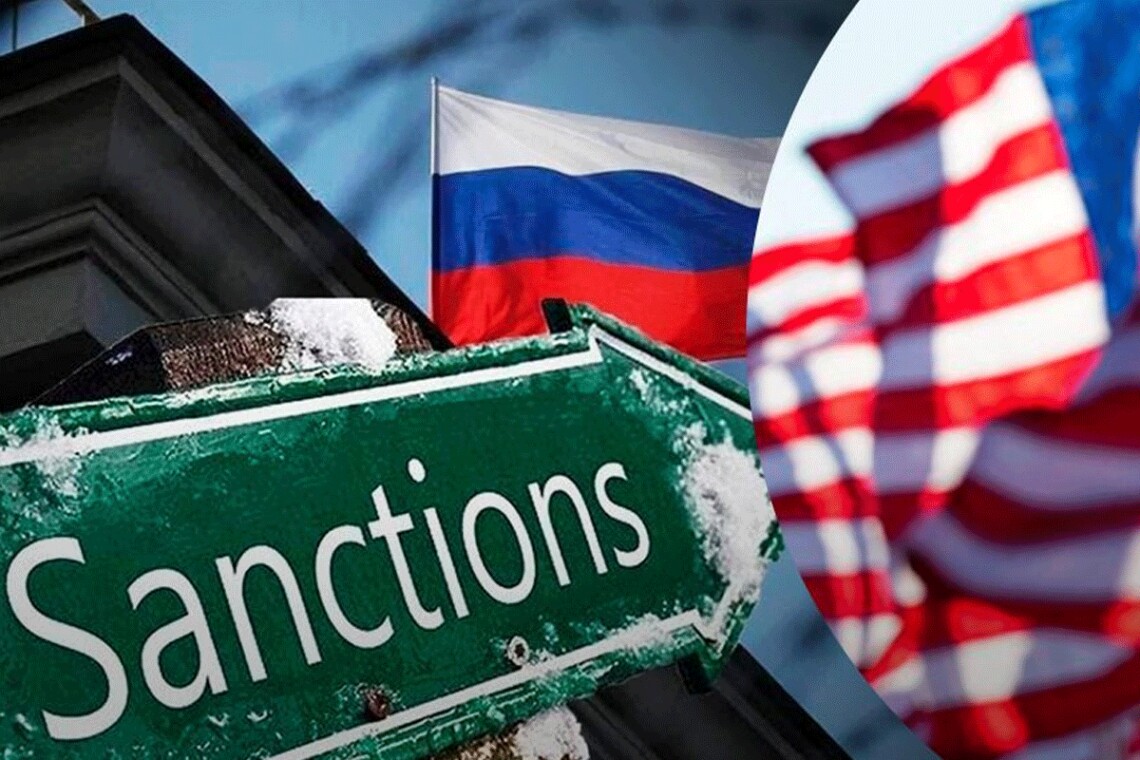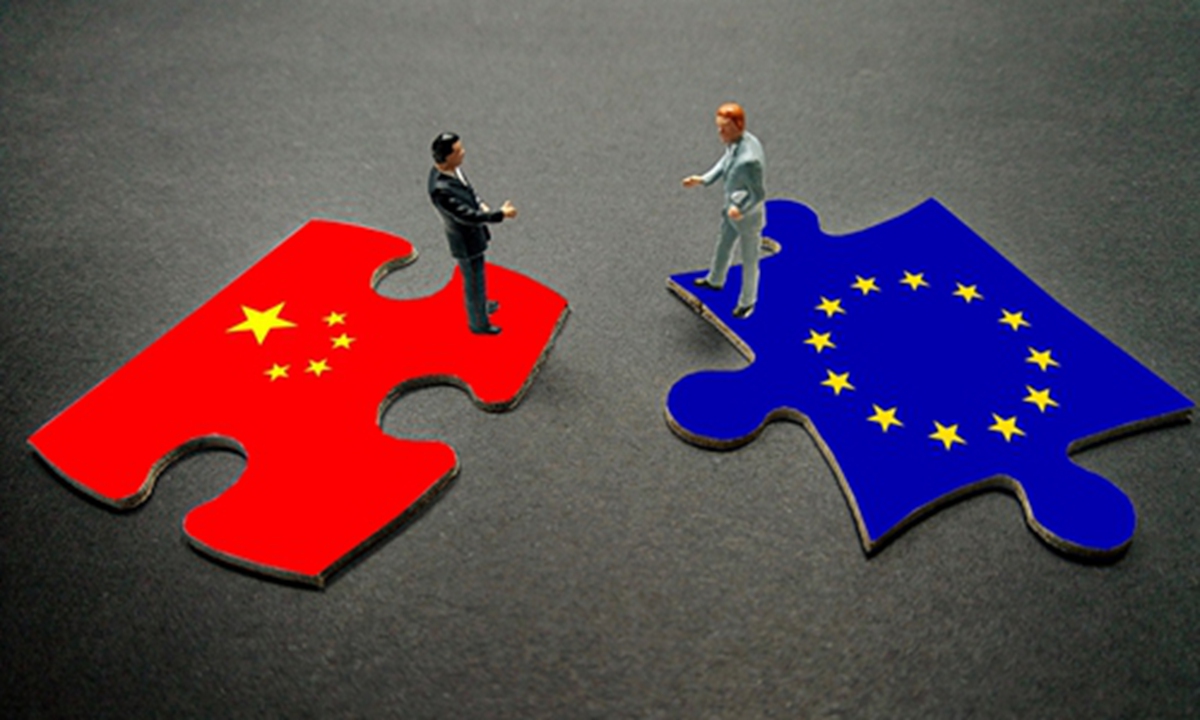EU’s Tough Stance, Imposes Sanctions On Indian And Chinese Companies With Links To Russia; China Issues A Warning To EU Following Sanctions; Do Sanctions Work?
Foreign companies, Indian as well as Chinese, have recently come under scrutiny and face sanctions over allegations of exporting dual-use goods - items capable of serving both civilian and military purposes- to Russia. This practice, outlined in EU regulations, has given way to concerns about indirect channels through which sensitive technology reaches Russia. Additionally, the United States has taken significant steps, imposing a substantial number of sanctions on entities in Russia and other countries in response to ongoing conflicts and geopolitical tensions. Meanwhile, following the sanctions on Chinese companies, China issued a warning to EU. However, in the grand scheme of things - do sanctions really work?

Just ahead of the two-year mark since Russia’s incursion into Ukraine, the European Union unveiled an extensive list of entities, individuals, and companies from various nations, such as Russia, India, Iran, China, and Syria, facing sanctions due to alleged connections to Russia’s defence and security sector.
This new set of sanctions introduces 27 additional entities to the existing roster of over 600 already subjected to bans and restrictions by the EU.
Notably, the latest additions include entities from mainland China and India, targeting sectors in these countries, which have been primary purchasers of Russian fossil fuels since Russia’s intensified conflict with Ukraine in February 2022.
Exploring further, what are the specifics of the new sanctions, their targets, the rationale behind sanctioning these companies, and the reactions from China, India, and Russia – highlighting the significance of these developments.
Among the 641 entities listed under the EU’s sanctions, the majority hail from Russia; however, a few entities from other nations also find themselves on the sanctions list.
These include –
- Eight companies from Iran in the aircraft and aviation sectors.
- Four companies from Hong Kong, which the United States government accused in December 2023 of supplying crucial items to Russia, deemed vital for its operations in Ukraine.
- Three companies from mainland China.
- Three from Uzbekistan, notably including Mvizion, previously sanctioned by the US for its alleged involvement in producing drones utilized by the Russian army.
- Two aviation companies from the United Arab Emirates (UAE).
- One company each from India, Singapore, Sri Lanka, Syria, Armenia, Serbia, Turkey, Thailand, and Kazakhstan.
Additionally, the list includes the Zaliv Shipbuilding yard, situated in Crimea, annexed by Russia in 2014, yet still recognized by most nations as legally part of Ukraine.
Apart from Russian entities, the sanctions extend to Russian officials, spanning judiciary members, local politicians, and individuals the EU holds accountable for the “illegal deportation and military re-education of Ukrainian children.”
The bulk of international companies faced EU sanctions back in June 2023, with only 27 entities newly added to the list as of the recent announcement.
It should be noted that Deputy U.S. Treasury Secretary Wally Adeyemo announced in an interview last Thursday that on Friday, the United States, in collaboration with other nations, will enact sanctions against over 500 entities. The move coincides with the second anniversary of Russia’s invasion of Ukraine.
Adeyemo highlighted that the sanctions will focus on Russia’s military-industrial complex and entities in third countries that aid Russia in obtaining desired goods. This action also comes in as Washington’s efforts to hold Russia responsible for the conflict and the demise of opposition figure Alexei Navalny.

The reason for sanctions?
These companies face sanctions due to allegations of exporting dual-use goods to Russia, items capable of serving both civilian and military purposes, such as technology, satellites, or drones. In EU regulations, these foreign countries are categorized as “third countries.”
Ali Ahmadi, an expert in sanctions and economic statecraft, elaborates that these countries often serve as “points of transshipment,” acting as intermediary locations through which sensitive technology is routed to Russia.
When European countries decline to export an item to Russia over concerns of potential military applications, the item might still find its way to countries like Uzbekistan or the UAE. Subsequently, it could be resold to Russia, sometimes without proper branding or labelling indicating its country of origin.
Thus, as Ahmadi, pointed out, the goods essentially reach Russia indirectly through such channels; as the United States imposed approximately 600 new sanctions against entities in Russia and other nations on Friday, notably it marks the largest single round of penalties since Russia’s invasion of Ukraine on February 24, 2022.
However, there is a gap and a degree of overlap between the entities targeted by the US and the EU sanctions – while the US and EU often collaborate closely, there are instances where entities appear on one sanctions list but not the other.

How will the sanctions impact the entities?
Under the EU sanctions, since member states are prohibited from selling battlefield or dual-use goods to entities listed on the sanctions roster, the sanctions imposed by the US and EU on companies in countries other than Russia will significantly impede their ability to engage with the global market.
Drawing parallels with former US President Donald Trump’s maximum pressure campaigns against Iran or Syria, it seems that these sanctions represent a more aggressive stance, indicative of the acknowledgement that the EU’s previous sanctions were susceptible to exploitation.
Nevertheless, the third countries themselves may not experience a substantial immediate impact, as only a few companies from these nations have been targeted thus far.
For instance, Iran, home to the most targeted companies after Russia, primarily features state-owned institutions on the sanctions list.
These entities conduct business primarily with Iran’s allies, operate outside the dollar-centric financial system, and avoid transactions with European entities. Consequently, they are insulated from the effects of the new sanctions.
Experts assert that the primary purpose of these sanctions is to convey the EU’s disapproval and serve as a reminder to host countries, including China and India, of the potential for further punitive measures from Brussels if deemed necessary.

China’s Warning To The EU
Following the announcement of sanctions, the Chinese Ministry of Commerce issued a statement on Monday condemning the actions.
In its statement, the ministry denounced the sanctions as unilateral, asserting that they lacked any legal basis under international law and lacked authorization from the United Nations Security Council.
Criticism of sanctions imposed by individual countries or blocs like the EU, without UN approval, has been longstanding from Beijing, New Delhi, and many capitals in the Global South. However, China’s veto power within the Security Council effectively prevents the council from endorsing sanctions against Beijing.
Furthermore, the Chinese statement emphasized that the sanctions contradicted the spirit of discussions held during the China-EU leaders’ meeting between Chinese President Xi Jinping and European Commission President Ursula von der Leyen in December 2023.
China cautioned that these sanctions would adversely affect economic and trade relations between China and the EU.
However, according to experts, China’s response, much like the EU sanctions themselves, is primarily symbolic, noting that while China perceives the need to react, the impact is minimal as only Chinese microtechnology companies have been affected.
If the EU were to target major Chinese banks with sanctions, it could have significant repercussions for the global economy. Nevertheless, experts suggested that neither Europeans nor Americans seem willing to take such drastic measures, even though it might be necessary to curb transshipment through China.

Which Indian company has faced sanctions?
As of Friday, Si2 Microsystems Pvt Ltd, headquartered in Bengaluru, India, has been newly added to the sanctions list.
Si2 specializes in designing integrated circuits for various industries including commercial, military, and space sectors. The company has collaborated with India’s Ministry of Electronics and Information Technology (Meity) and the state-funded Indian Institute of Technology Madras to research chip fabrication with silicon photonic processor cores.
It manufactures chips for quantum computing, avionics, and other industries, boasting past clients such as the Indian Space Research Organisation (ISRO), General Electric, and IBM, according to government press releases and reports from global tech publisher, The Register.
While the specifics of Si2’s alleged involvement with Russia are not detailed in the EU sanctions, experts suspect the company may have facilitated semiconductor shipments to Moscow and given that many modern weapons systems rely heavily on semiconductors, such actions could be deemed significant.
India stands as a key strategic partner for both the EU and the US and despite being one of the largest purchasers of Russian fossil fuels since the onset of the conflict, New Delhi and Indian entities had previously avoided direct targeting by Western sanctions.
What is EU Regulation 833/2014?
Enacted on July 31, 2014, the European Council’s Regulation 833/2014 prohibits the sale, supply, transfer, or export of dual-use goods and technology directly or indirectly to Russia or for use within Russia.
The regulation was introduced following Russia’s annexation of Crimea and its support for separatist movements in eastern Ukraine.
The recent EU regulation introduced on Friday serves as an amendment to Regulation 833/2014.
The most recent prior amendment occurred on December 18, 2023, adding 13 new entities to the sanctions list.
Initially, sanctions primarily targeted Russian and Belarusian entities. However, in February 2023, seven Iranian entities faced sanctions for allegedly producing items utilized by Russia’s military during the conflict.
Again, in June 2023, entities from Hong Kong, China, Uzbekistan, the United Arab Emirates, Syria, and Armenia were also included on the sanctions list.
Russia’s Stance
In reaction to the recent imposition of EU sanctions, Moscow’s foreign ministry declared on Friday that it had notably enlarged a list of EU officials and politicians prohibited from entering Russia.
Expressing its stance, the Russian foreign ministry characterized the EU’s actions as futile endeavors aimed at exerting pressure on Russia through unilateral restrictive measures.
Do Sanctions Work?
The impact of sanctions on Russia’s economy varies and depends on various factors, including the severity of the sanctions, Russia’s resilience, and its ability to adapt to new economic circumstances.
Still, historically, sanctions have had mixed results in affecting Russia’s economy.
Firstly, it’s essential to acknowledge that Russia’s economy is diverse and resilient, with significant natural resources, particularly oil and gas. This resource abundance has provided Russia with a degree of insulation against economic pressure from sanctions.
However, past examples show that sanctions can indeed have an effect, particularly when they target key sectors like finance, energy, and technology.
For instance, following Russia’s annexation of Crimea in 2014, the EU and the US imposed sanctions targeting Russia’s financial, energy, and defence sectors; these measures, coupled with falling oil prices, contributed to a recession in Russia’s economy.
Likewise, the sanctions imposed on Russia have also had consequences for its currency and investment climate.
The Russian ruble experienced significant depreciation, and foreign investment declined as investors became wary of the risks associated with doing business in Russia.
Moreover, sanctions can also have broader geopolitical implications, leading to increased isolation and diplomatic tensions for the sanctioned country – the isolation can worsen economic challenges and limit opportunities for economic growth and development.
In terms of the current situation, the effectiveness of sanctions on Russia will depend on various factors, including the willingness of other countries to enforce them, Russia’s response, and the broader geopolitical context.
While sanctions may exert some pressure on Russia’s economy, they are unlikely to bring about a dramatic change on their own; their success in achieving broader geopolitical objectives remains uncertain and is subject to a range of factors beyond purely economic considerations.




